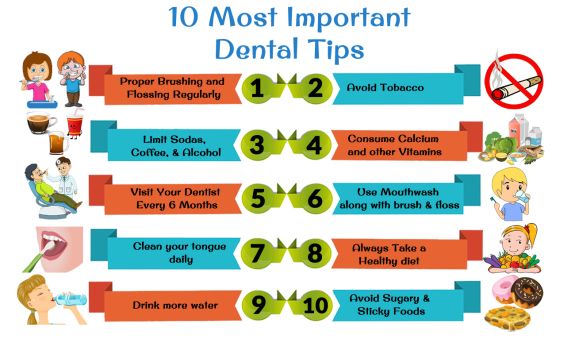The Best Dentist Tips for The Best Dental Care

Proper oral hygiene is essential for keeping gums and teeth healthy. It involves habits like regular dental checkups and brushing two times a day. But, oral health is about more than gum disease and cavities. Research shows that there is a connection between the health of a person’s mouth and overall health. Without treatment, gum or tooth decay problems can lead to tooth loss, pain and losing self –confidence. These problems may lead to speech problems, malnutrition and various challenges in a person’s professional and personal lives. People can able to prevent these concerns with proper dental care Springfield VA both in the dentist’s office and at home. The following are the best practices that can keep your gums and teeth healthy.
Regular brushing but not aggressively
Using dental floss and brushing two times a day will help to keep your gums and teeth healthy. People know that brushing two times a day is crucial for removing bacteria and plaque and keep the teeth clean. But, brushing will be effective if using the right technique. You should use a toothbrush that has soft bristles and brush using small circular motions. Take care to brush the top, back, and front of every tooth and will take between two to three minutes. Avoid brushing too hard that can damage the gums and the tooth enamel. You must change your toothbrush every three months for the best results.
Fluoride
Experts are of the view that fluoride helps to fight cavities and is a common ingredient in mouthwash and toothpaste. Evidence shows that absence fluoride leads to tooth decay, even if you are taking care of your teeth. A recent study shows that if fluoride is not taken, flossing and brushing will also not prevent a person from getting cavities. In the United States, many communities have added fluoride to their water supply.
Flossing
Flossing helps in removing bacteria and plaque between the teeth where a toothbrush is unable to reach. It also helps in preventing bad breath by removing food and debris that gets trapped between the teeth. Dental care Springfield VA professionals recommend gently pushing the floss down to the gum line before hugging the side of the tooth with down and up motions.
Limit Starches and Sugary Foods
Studies highlight the significant role that consuming sugar leads to adverse dental health results like cavities. You must avoid desserts, candy, and processed foods. It is recommended that you should limit the intake of sugar below ten percent of your daily calories. Lowering to five percent will further reduce the risk of cavities and other problems. Starchy foods like pasta, chips, bread, and crackers cause tooth decay. Instead of these foods consume fiber-rich vegetables and fruits as well as dairy products without the extra sugar.
Visit your Dentist
Your dentist can able to diagnose and treat oral health problems before they become severe. It is recommended that you should visit your dentist for a checkup every six months. At the time of routine dental examination, the hygienist will be cleaning the teeth and remove hardened tartar and plaque. The dentist will also check for visual signs of mouth cancer, gum disease, and cavities. Sometimes for checking cavities, dental X-rays are used. You should consult with your discuss how frequently checkup is needed. The answer will vary depending on a person’s age, health history, and overall dental health.
Avoid sugary drinks and drink water
Sipping on juice, soda or various sugary drinks leads to a higher risk of cavities. It is recommended to drink water or unsweetened tea throughout the day.
Mouth Wash
Studies show that specific mouthwashes are beneficial for oral health. Mouthwash containing chlorhexidine, an antibacterial ingredient helps in controlling gingivitis and plaque. A mouthwash is not a substitute for flossing and brushing, but it can complement these practices.
Quit Smoking
Smoking is a risk factor for gum diseases and also harms the immune system of your body thereby making it difficult for the body to heal tissues including your mouth. People who smoke affects the appearance of the mouth leading to the yellowing of tongue and teeth, and experience slow healing after dental treatment.




